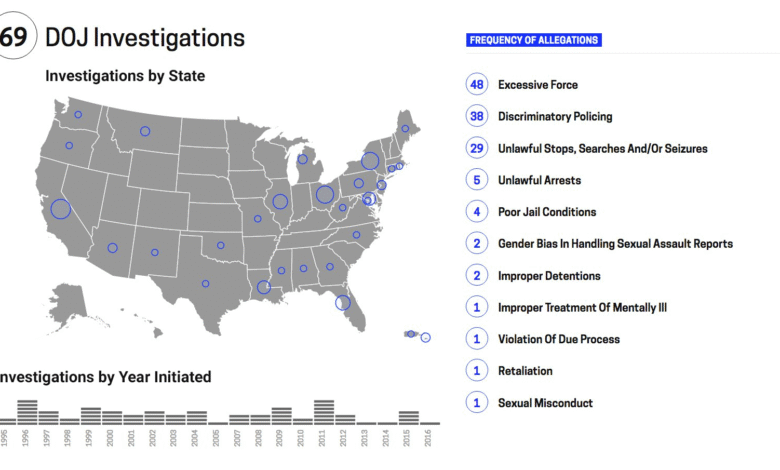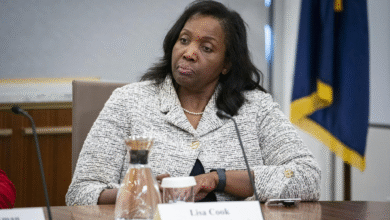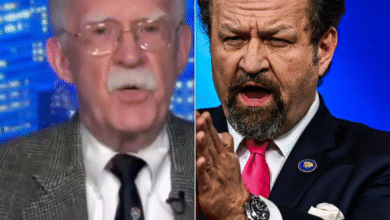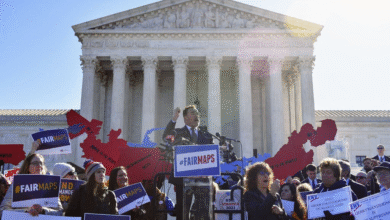Justice Department Police Investigations End Amid Changes

The Justice Department police investigations into local law enforcement agencies have garnered significant attention and debate in recent years, particularly surrounding issues of civil rights and police oversight. With a focus on uncovering patterns of unconstitutional conduct, these investigations have played a vital role in addressing systemic issues within affected police departments. Recent developments, including announcements regarding the discontinuation of lawsuits against local police departments, indicate a shift in priorities under the current Justice Department leadership, particularly under Assistant Attorney General Harmeet K. Dhillon. This evolution raises questions about the future of accountability for police conduct and the ongoing impact on communities disproportionately affected by excessive force and discrimination. As the landscape of law enforcement oversight continues to change, understanding the implications of these investigations remains crucial for advocates of civil rights and police reform.
In the realm of law enforcement accountability, the ongoing scrutiny of police conduct through federal investigations is transforming community policing practices. The Justice Department’s recent decision to scale back its inquiries into local law enforcement signals a reorientation of federal oversight that many are closely watching. With Assistant Attorney General Harmeet K. Dhillon at the helm, there is a growing dialogue surrounding civil liberties and the role of oversight in maintaining ethical policing. As we delve into these topics, it becomes essential to explore the implications for civil rights and the balance of power between local authorities and federal oversight. The evolving dynamics of police investigations are crucial not only for law enforcement officials but also for the communities they serve.
Justice Department Police Investigations: A Shift in Oversight
The recent decision by the Justice Department to withdraw civil rights investigations into local police departments reflects a significant shift in the approach to police oversight. Historically, such investigations aimed to uncover patterns of unconstitutional conduct, holding police departments accountable for excessive force and discrimination. However, under the new leadership of Assistant Attorney General Harmeet K. Dhillon, the Justice Department has opted to dissolve numerous lawsuits initiated against police departments during the Biden administration. This move has raised concerns among civil rights advocates, who fear this will result in diminished police accountability.
This shift can be traced back to broader political changes within the Justice Department, particularly during the Trump administration. The Justice Department’s Civil Rights Division, once seen as a protector of civil liberties, is now perceived as prioritizing local control over the need for essential oversight. Critics argue that this could lead to unchecked police practices and erosion of civil rights protections, especially in communities already facing systemic racism and police violence.
Impact of Harmeet K. Dhillon on Police Accountability
Harmeet K. Dhillon’s confirmation as Assistant Attorney General has had a profound impact on the Justice Department’s approach to policing and civil rights. Her stance against broad police consent decrees reflects an ideological commitment to limiting federal oversight in favor of local governance. Dhillon’s assertion that such decrees transfer control from community leaders to unelected officials in Washington has resonated with various stakeholders, but it has also generated significant backlash from those who advocate for robust police oversight as a means to curb systemic abuses.
Supporters of Dhillon argue that local police departments should have the autonomy to manage their internal affairs without federal intervention. However, opponents contend that without the Justice Department’s monitoring, patterns of unconstitutional conduct may continue unchecked. Instances of excessive force and racial discrimination documented during previous investigations underscore the importance of federal oversight, especially in cities like Minneapolis and Louisville, where tragic events have highlighted the need for reform.
Concerns Over Unconstitutional Conduct in Police Departments
The Attorney General’s decision to end investigations related to patterns of unconstitutional conduct has sparked immediate concerns regarding the potential resurgence of systemic issues within local police departments. Investigations have previously revealed alarming trends of excessive force and discriminatory practices toward marginalized communities. In cities like Minneapolis and Louisville, where police violence has tragically made national headlines, the withdrawal of oversight may allow such behaviors to persist unchallenged, undermining efforts for justice.
Additionally, this decision raises critical questions about the future of civil rights enforcement in the United States. Advocates argue that the lack of federal scrutiny may embolden police departments to operate without fear of consequences for abusive practices. As societal movements demand accountability and reform, the Justice Department’s retreat from oversight could inadvertently support a culture of impunity among law enforcement agencies.
The Role of Local Police Departments in Civil Rights
Local police departments are tasked with policing their communities, but their role dramatically impacts civil rights. The Justice Department’s investigations into these departments often shed light on systematic failings that violate the civil liberties of citizens. The alarming revelations from the investigations led to calls for reform, as public trust in law enforcement waned due to repeated instances of brutality and discrimination.
With the Attorney General’s recent moves to pull back on civil rights investigations, local departments may feel less compelled to change potentially harmful practices. Many experts argue that for meaningful change to occur, there must be a concerted effort by both local governments and law enforcement to prioritize civil rights and community engagement. The challenges lie in ensuring that local police departments are held accountable for their actions, particularly when operating in the absence of federal oversight.
Responses from Civil Rights Advocates and Organizations
The Justice Department’s withdrawal from civil rights investigations has drawn strong responses from civil rights advocates and organizations, who see this as a significant setback in the fight for police reform. Organizations such as the American Civil Liberties Union (ACLU) and the NAACP have expressed alarm, indicating that this decision undermines progress made toward addressing police misconduct and protecting civil liberties. Activists stress that without federal guidance and scrutiny, the tide of reform may be reversed, leaving communities vulnerable to continued misuse of power.
Advocates argue that the investigations conducted by the Justice Department served as critical tools for accountability, particularly in cases of police violence and discrimination against marginalized populations. The prospect of halting these investigations has raised fears that law enforcement may revert to practices that not only endanger public safety but also violate fundamental civil rights. The urgency for a comprehensive review of police practices and sufficient oversight mechanisms remains a key focus among civil rights organizations.
Historical Context of Police Oversight in the U.S.
Police oversight has a complex history in the United States, shaped by pivotal events and movements advocating for civil rights. The establishment of the Justice Department’s Civil Rights Division marked a significant commitment to addressing systemic issues within law enforcement, particularly following the civil rights movement of the 1960s. This era established a foundation for monitoring police conduct and holding departments accountable for their practices, especially in communities of color that have historically faced systemic abuse.
Over the years, numerous incidents have highlighted the need for continuous oversight due to recurring patterns of unchecked misconduct. The investigations initiated by the Justice Department during the Biden administration aimed to correct these issues; however, the current policy changes reflect a departure from decades of progress. Understanding the historical dynamics of police oversight is crucial to grasping the gravity of the recent moves and the potential implications for civil rights protections across the nation.
Challenges in Reforming Local Law Enforcement
Reforming local law enforcement is fraught with challenges that often stem from deeply rooted institutional practices and community relations. Despite numerous calls for change, police departments can be resistant to altering long-standing policies and procedures that govern their operations. This is exemplified by the pushback against federal oversight, viewed by some law enforcement agencies as an infringement on their autonomy, leading to conflicts between reform advocates and police unions.
Additionally, the political landscape can complicate reform efforts, particularly with shifting administrations and varying levels of commitment to civil rights. The decision by the Justice Department to abandon investigations may embolden local leaders who prioritize traditional policing methods over necessary reform. Comprehensive reform in local law enforcement requires collaboration between communities and law enforcement agencies, fostering accountability while ensuring public safety.
The Future of Civil Rights in Policing
The future of civil rights in policing hangs in a delicate balance in light of the Justice Department’s recent actions. As oversight diminishes, civil rights advocates are tasked with rallying communities and lawmakers to prioritize reform. There is a growing consensus that without consistent federal intervention, the progress made toward protecting civil liberties could be jeopardized. Advocates emphasize the importance of mobilizing grassroots movements to push for legislative changes that ensure accountability in policing.
Looking ahead, the ongoing dialogue surrounding police reform is essential to shaping the next chapter of civil rights advocacy. Innovative solutions that advocate for community engagement and transparency within law enforcement could emerge, fostering trust and modernizing policing practices. The actions of the Justice Department serve as a reminder that the work toward civil rights vigilance and promotion of ethical policing is far from over, sparking renewed determination among activists.
Advocacy and Mobilization for Police Reform
Activism plays a critical role in the push for police reform, especially as federal oversight diminishes. Community organizations and civil rights groups are mobilizing to not only raise awareness about ongoing injustices but also to advocate for change at local, state, and national levels. This grassroots movement is vital for holding police departments accountable for their actions, particularly in light of investigations that previously exposed discriminatory practices and excessive force.
Advocates are also focusing on legislative measures aimed at enhancing police accountability, including reforms that emphasize transparency, community engagement, and consent decrees where necessary. Mobilization efforts include organizing protests, public forums, and lobbying elected officials to prioritize civil rights in policing. As local police departments navigate the current political climate, the continued dedication of advocacy groups is essential to ensuring that police practices align with the principles of justice and equality.
Frequently Asked Questions
What are Justice Department police investigations related to civil rights violations?
Justice Department police investigations related to civil rights violations involve the examination of local police departments to identify patterns of unconstitutional conduct, such as excessive force and discrimination. These investigations aim to ensure that law enforcement agencies uphold citizens’ civil rights.
Why did the Justice Department end investigations into local police departments?
The Justice Department ended investigations into local police departments, including those in Minneapolis and Louisville, citing the need to restore local control over policing. New policies under Assistant Attorney General Harmeet K. Dhillon reflect a shift away from federally imposed oversight, focusing on empowering local leaders.
How do Justice Department police investigations affect police oversight?
Justice Department police investigations are crucial for police oversight as they uncover systemic issues within local police departments. These investigations can lead to reforms to prevent unconstitutional conduct and protect civil rights, although recent changes have shifted the focus towards reducing federal intervention.
What was the impact of the Justice Department’s civil rights investigations on local police practices?
The civil rights investigations conducted by the Justice Department aimed to address and rectify patterns of unconstitutional conduct in local police practices. However, recent statements from Harmeet K. Dhillon indicate a move to limit federal oversight and restore local governance over police practices.
What were the findings of the Justice Department’s investigations into Minneapolis and Louisville police departments?
The Justice Department’s investigations revealed patterns of excessive force, discrimination, and violations of free speech rights in the Minneapolis and Louisville police departments, which contributed to significant public outcry and calls for reform in policing practices.
Who is Harmeet K. Dhillon in relation to Justice Department police investigations?
Harmeet K. Dhillon is the current Assistant Attorney General leading the Justice Department’s Civil Rights Division, overseeing police investigations. She has recently indicated a shift in policy to end certain civil rights investigations that constrain local police departments.
Are Justice Department police investigations still ongoing in other cities?
As of now, the Justice Department has announced the termination of investigations in multiple cities, including Phoenix and Memphis, indicating a broader shift in policy towards local police oversight and away from federal investigations into alleged unconstitutional conduct.
What does the end of Justice Department police investigations mean for civil rights?
The end of Justice Department police investigations may impact the enforcement of civil rights protections at the local level, potentially reducing accountability for police departments accused of unconstitutional conduct, as federal oversight is scaled back under the current leadership.
| Key Points |
|---|
| The Justice Department has ended civil rights investigations into various local police departments as of May 21, 2025. |
| Lawsuits filed during the Biden administration against police departments in Louisville and Minneapolis will be dismissed. |
| The change is associated with the confirmation of Assistant Attorney General Harmeet K. Dhillon and reflects a shift in the Civil Rights Division’s priorities. |
| The investigations revealed patterns of excessive force and discrimination, but they will no longer proceed under the current administration. |
| Harmeet K. Dhillon emphasized the need for local control over policing instead of federal oversight through consent decrees. |
| Investigations into other police departments, including those in Phoenix and Memphis, are also being terminated. |
Summary
Justice Department police investigations have shifted dramatically as the Justice Department announces the termination of various civil rights inquiries into local police departments. This deviation from oversight marks a significant transition in the approach to police accountability and community relations, with the current leadership advocating for a reduction in federal oversight and a return of control to local communities.




